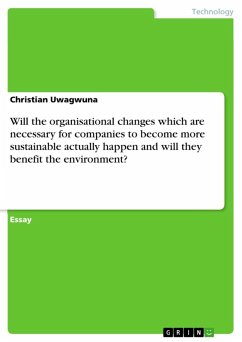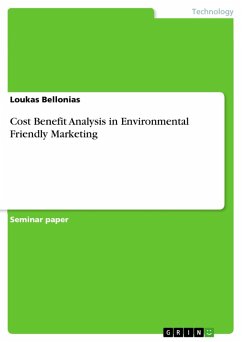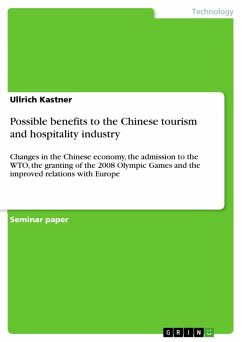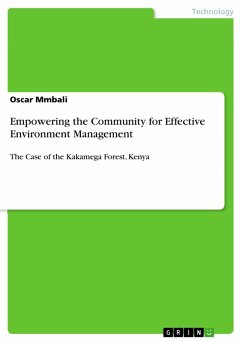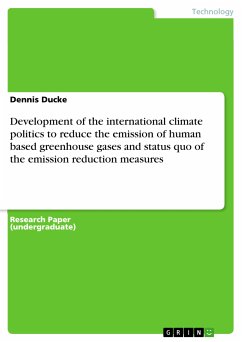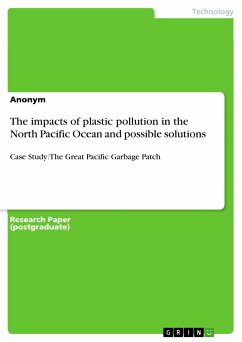Essay from the year 2011 in the subject Environmental Sciences, grade: none, University of Leicester, course: Strategy and Management, language: English, abstract: Introduction There is no gainsaying that the continuous exploitation of the world natural resources by humans and more so corporations have led to their depletion and hence resulted in environmental degradation, pollution, change in the composition of earth's ecosystem and biodiversity, and climate change. Foremost culprit of the exploitation of the world natural resources are the various corporations who exploit these resources to develop one form of product or the other for the sole aim of making profit. Traditionally, companies are in business solely for the maximization of shareholders returns and while this business model has been highly successful, driving businesses by shareholders value alone has become highly unsustainable (Grayson et al, 2008). This traditional approach to business is no longer tenable in today's modern world. This is because business practices that involve the release of huge amount of non-decomposable waste into the environment, that consume huge amount of energy, that contaminate the environment and that undermines local communities are viewed as unfriendly to the environment and can no longer be justified solely by shareholders return. While recognizing the importance of corporate growth and profitability, corporate sustainability requires that organisation pursues societal goals, such as environmental protection, social justice and equity (Mel, 2003). This paper will discuss in detail what corporate sustainability entails, while corporations need to change from their traditional values to a more sustainable one, the drivers of organisational change, the condition under which the change will occur, the factors militating against organisational change, and the various stakeholders affected by organisational change and the benefits these changes portend to the environment and 3 various species in general. Interestingly, organisational change is already underway, these changes are driven by modern environment reality, visionary leaders within and outside the organisation and by various change agents. [...]
Dieser Download kann aus rechtlichen Gründen nur mit Rechnungsadresse in A, B, BG, CY, CZ, D, DK, EW, E, FIN, F, GR, HR, H, IRL, I, LT, L, LR, M, NL, PL, P, R, S, SLO, SK ausgeliefert werden.

